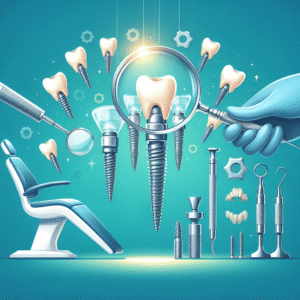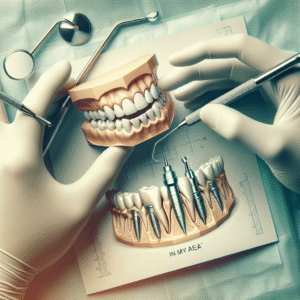All-on-4 Dental Implant Procedure Average Cost
Dental implants have revolutionized restorative dentistry, offering patients a permanent solution to missing teeth. Among the most advanced techniques is the All-on-4 dental implant procedure, which provides a full-arch restoration using just four strategically placed implants. This innovative approach is often marketed as Teeth-in-a-Day or Same-Day Implants, allowing patients to leave the dental office with a fully functional smile in a single visit.
However, one of the most common questions patients have is: What is the average cost of the All-on-4 procedure? The answer depends on several factors, including the materials used, the need for additional treatments like bone grafting for dental implants, and the geographic location of the dental practice. In this article, we’ll break down the costs, compare alternatives like implant-supported dentures and zygomatic implants, and explore what influences pricing.
Understanding the All-on-4 Dental Implant Procedure
The All-on-4 technique is designed to replace an entire arch of missing teeth using four dental implants—two placed vertically in the front of the jaw and two angled in the back. This method maximizes bone support, often eliminating the need for extensive bone grafting for dental implants, which can significantly reduce both treatment time and cost.
Key Benefits of All-on-4 Implants
- Immediate Functionality: Patients receive a temporary prosthesis on the same day as surgery, hence the term Teeth-in-a-Day.
- Minimally Invasive: Fewer implants mean less surgical trauma.
- Cost-Effective: Compared to traditional full-arch dental implants, which may require six to eight implants per arch, All-on-4 reduces expenses.
- Bone Preservation: Angled implants avoid areas with bone loss, often making grafting unnecessary.
Factors Influencing the Cost of All-on-4 Implants
The average cost of All-on-4 dental implants ranges between $15,000 to $30,000 per arch, but this can vary widely. Below are the primary factors affecting pricing:
1. Material Choices
- Prosthesis Material: The type of prosthetic teeth (acrylic, porcelain, or zirconia) impacts cost. Zirconia is the most durable but also the most expensive.
- Implant Brand: Premium brands like Nobel Biocare or Straumann may increase costs but offer better longevity.
2. Pre-Surgical Procedures
Some patients require preparatory treatments, such as:
- Bone Grafting for Dental Implants: If bone density is insufficient, grafting adds $1,500–$3,000 per site.
- Tooth Extractions: Removing remaining teeth before implant placement can cost $100–$500 per tooth.
3. Dentist’s Expertise and Location
- Experienced implantologists or prosthodontists may charge more.
- Costs are higher in metropolitan areas compared to rural clinics.
4. Additional Treatments
- Zygomatic Implants: For patients with severe bone loss in the upper jaw, zygomatic implants (anchored in the cheekbone) may be necessary, increasing costs by $5,000–$10,000 per arch.
- Sedation Options: IV sedation or general anesthesia adds $500–$1,500.
Comparing All-on-4 to Alternative Solutions
Implant-Supported Dentures
Unlike All-on-4, which is fixed, implant-supported dentures are
Traditional Full-Arch Dental Implants
Conventional full-arch restorations require more implants (6–8 per arch) and often involve bone grafting. Prices range from $25,000–$50,000 per arch, making All-on-4 a cost-effective alternative.
Zygomatic Implants
For patients with extreme bone atrophy, zygomatic implants bypass the jawbone entirely, anchoring in the zygomatic (cheek) bone. While highly effective, they are more complex and expensive, averaging $20,000–$40,000 per arch.
Is the All-on-4 Procedure Worth the Cost?
Despite the upfront expense, All-on-4 implants offer long-term value:
- Durability: With proper care, they can last 20+ years.
- Improved Quality of Life: Restored chewing function, speech, and aesthetics.
- Prevents Bone Loss: Unlike traditional dentures, implants stimulate the jawbone, preventing deterioration.
Financing and Insurance Coverage
Most dental insurance plans do not cover the full cost of All-on-4 implants, but some may contribute to related procedures like extractions or bone grafting for dental implants. Financing options include:
- Payment Plans: Many clinics offer in-house financing.
- Healthcare Credit Cards: CareCredit or LendingClub provide low-interest options.
- Dental Discount Plans: Reduced fees through membership programs.
Conclusion
The All-on-4 dental implant procedure provides a cost-effective, efficient solution for full-arch tooth replacement, with an average cost of $15,000–$30,000 per arch. While factors like bone grafting for dental implants, zygomatic implants, and material choices influence pricing, the benefits—such as Teeth-in-a-Day convenience and long-term durability—make it a worthwhile investment.
For patients considering alternatives like implant-supported dentures or full-arch dental implants, consulting with a qualified implant dentist is essential to determine the best option for both oral health and budget.
Frequently Asked Questions
1. What is the average cost of the All-on-4 dental implant procedure?
The average cost of the All-on-4 dental implant procedure typically ranges between $15,000 to $30,000 per arch, depending on factors like location, materials used, and the dentist’s expertise.
2. Does insurance cover the All-on-4 procedure?
Most dental insurance plans do not fully cover the All-on-4 procedure, but some may offer partial coverage for certain aspects, such as extractions or temporary prosthetics. It’s best to check with your provider.
3. Are there financing options available for All-on-4 implants?
Yes, many dental clinics offer financing plans, payment options, or work with third-party lenders to help patients manage the cost of the All-on-4 procedure.
4. How does the cost of All-on-4 compare to traditional dentures or implants?
While All-on-4 implants are more expensive upfront than traditional dentures, they are often more cost-effective in the long run due to their durability, functionality, and reduced need for replacements or adjustments.




